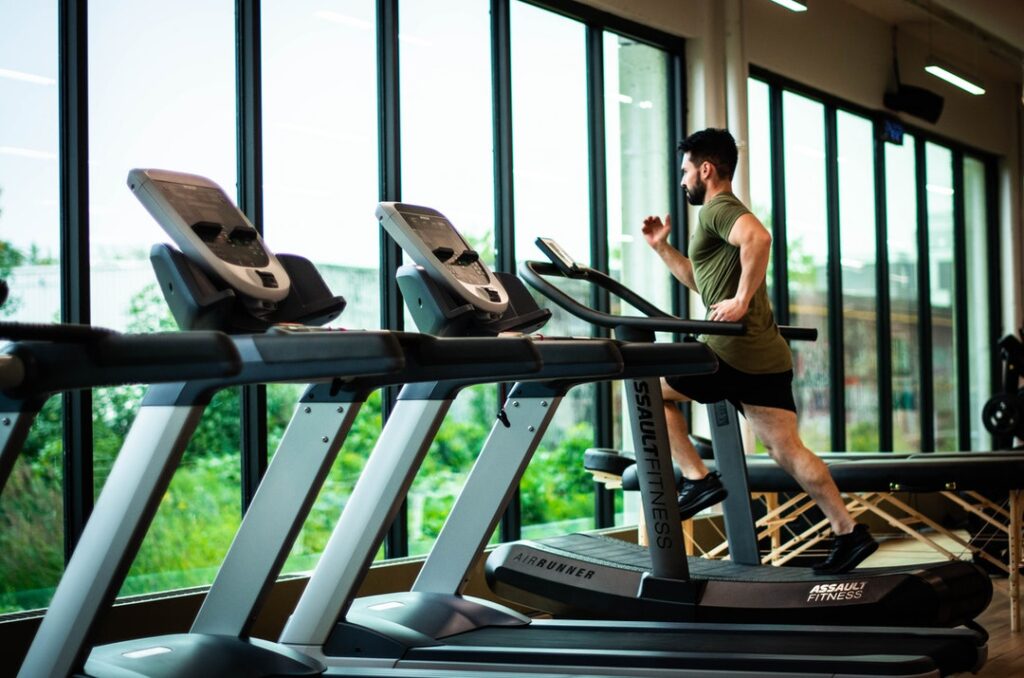As covid travel restrictions begin to ease up around the world, it seems like that beach holiday you’ve been dreaming about the last year may just be possible! But, it’s just dawned on you that all those lockdown takeaways and days spent playing video games instead of running laps around your local park haven’t helped to prepare your ‘holiday body’.
Don’t stress though, as it’s never too late to start embracing a healthier lifestyle and achieve your fitness goals. However, when it comes to losing weight, there’s still a debate over what’s more important, diet or exercise?
Diet Vs. Exercise
You might have heard over the years certain people say, “I worked out for two hours this morning, I can eat whatever I like”, or “I don’t need to exercise too hard, I only eat healthy foods”. You won’t get far on your fitness journey with this kind of mentality and condemn yourself to a pattern of unexpected weight gain and unhealthy practices.
As technology has advanced, humans have become more comfortable and we are no longer as active as our predecessors. Their day-to-day work and overall lifestyle involved performing numerous physical activities and being on their feet most of the day. They also tended to live off the land, eating what they grew and farmed, meaning their daily meals were well-balanced and nutritional. This lifestyle is not the norm in the modern world, with office jobs where we sit for 6-8 hours a day replacing more physical roles.
Get Active
You’ve most likely heard the old saying “Diet is 80% and exercise is only 20% of weight loss“. You only need minutes to consume hundreds of calories that then require hours of physical exercise to burn off (walking 10,000 steps per day can burn 400-500 calories). When you examine the habits of individuals who have successfully lost weight and who can keep it off, exercise is likely at the core of that success.
Exercise will enable you to lose weight by burning mostly fat; a strict diet on its own won’t accomplish that. And because muscles require less room in your body than fat, exercise will help you fit into that pair of jeans you haven’t been able to wear in a few years but haven’t had the heart to throw away. Exercise aids in increasing your metabolism, meaning you burn more calories throughout the day.
Research shows that you don’t have to hit the gym for hours at a time to see the benefits of exercise. Frequent shorter sessions (10 minutes, two to three times per day) of moderate-intensity activity offer similar health benefits as longer sessions at the gym. Adding variety to your exercise routine will help you stay motivated, see results and not get bored.

A balanced routine should incorporate cardio training (for heart well-being), resistance training (for strength), functional-fitness practice (for mobility and balance) and stretching (for flexibility). But if you want to take it to the next level, you can’t just perform the recommended 30 minutes of movement a day. How long you sit and remain still throughout the day is a big factor too! Avoid a stationary way of life by getting out of your seat and moving regularly during the day.
Studies have revealed that along with helping to keep weight off, exercise provides numerous other positive outcomes in our lives, including a reduced opportunity for chronic disease (think heart disease, cancer and diabetes), consequences of stress and high blood pressure. Consistent training can also help with confidence, strength, sex drive, mental well-being, and provide a much-improved sleep. Exercise has also been shown to increase brain health with developments in memory retention and how you take in and retain knowledge.
You are what you eat
The food we choose to put into our bodies is so important and the advantages of consuming a healthy diet are as diverse as the benefits of exercise. It lowers the likelihood of life-changing diseases, assists with weight control, supports stress control, lessens the telltale signs of aging and enhances your skin and brain vitality. The advantages of sound nutrition are equal to exercise, meaning combining the two is crucial for good overall health!
When it comes to weight loss, people continually preach about keeping within a calorie deficit. It’s obvious that you need to reduce the number of calories in your diet to drop weight, but not all calories are the same. Calories found in sugary foods encourage fat storage within your body and increases your appetite. Ever tried to tackle your hunger with a cheeky chocolate bar or bag of sweets, only to be starving again a short time later and you then decide to eat more? People often talk about the benefits of a high protein diet or consuming protein powder as calories that derive from fat and protein help you feel full longer.

One way to address healthy food is to understand and incorporate the Mediterranean diet into your routine which has been shown to support good health. The Mediterranean diet is made up of food sourced from plants (fruits and vegetables), bread, whole grains, low- and non-fat dairy, seafood and poultry, nuts, seeds and olive oil. All the while shunning processed foods that are prevalent in most UK and European diets. If you stick to a similar diet to the Mediterranean diet, you’ll be consuming more low-calorie-dense foods.
Final Thoughts
Exercise and diet are both essential for long-term weight loss and your overall well-being. Discover ways to incorporate daily activity and healthier food selections in your life. For the greatest success, begin slowly and progress gradually; such as including a 10-minute walk and have fruit with lunch.


